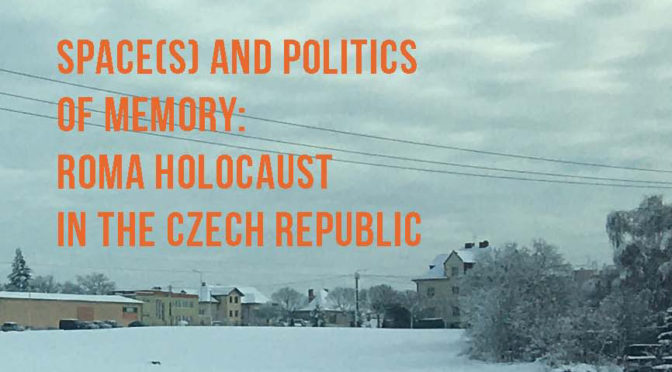
Space(s) and Politics of Memory:
Roma Holocaust in the Czech Republic
A Proteus Webinar
When: December 10th, 2021, at 10 am
Where: en ligne on zoom ID 450 714 1898 code 681515
https://upr-si.zoom.us/j/4507141898?pwd=MnVqYmZPTzZqbldYUEFHODRSbXlldz09
Language: English
Speaker
Yasar ABU GHOSH, lecturer, Charles University, Faculty of Humanities
Discussants
- Alenka JANKO SPREIZER, associate professor, University of Primorska, Faculty of Humanities
- Nikola LUDLOVÁ, PhD candidate at Central European University and CEFRES
A Proteus webinar organized by
- Petra KAVRECIC, assistant professor, University of Primorska, Faculty of Humanities
- Felipe Kaiser FERNANDES, PhD candidates at IIAV EHESS, associated at CEFRES & Charles University
Abstract
In anthropology, the relation of Roma to the past has been a central concern in conceptualizing Romani forms of attachment and belonging. These being enacted in the present, the past is seen as a “foreign country”. However, since 1980’s we have been witnessing a rising engagement of various European Roma and pro-Roma agents with struggles over the recognition of the memory of Holocaust and Romani victimhood. Be it in artistic expressions, in memoirs writings or in political participation, the shift towards historical framing signals a rather different attitude towards the past. The apparent contradiction has been highlighted in several contributions that sought to explain it by reference to new politics of identity, to ethnic emancipation and Europeanization, or by discerning the formation of a Romani elite as the bearer of an emerging political subjectivity.
In my presentation I will build on a dissection of a commemorative practice identified as name-reading, a practice that is constituted at the nexus of inclusive politics of commemoration and what is called the archival mode in Holocaust commemoration. Dissecting the practice should allow to raise questions that would connect a practice of commemoration with some of the cultural frames of memory identified by anthropologists of different Roma communities. I will be asking does name-reading serve what commemoration is supposed to do, that is actualize the past for the needs of the present?
Yasar Abu Ghosh is lecturer in sociocultural anthropology at the Department of Social and Cutlural Anthropology, Charles University, Prague and faculty member of NYU Prague. He specializes in topics related to Central European Roma, economic and political anthropology and ethnographic methodology. His latest research focuses on survival strategies of poor Roma in the Czech Republic, on politics of marginalization and the enduring effects of racialized regimes of state minority policies, as well as on the formation and logic of Romani subjectivity in response to processes of cultural dispossession. In 2016 he was a Fulbright scholar at the Department of Anthropology, University of California in Berkeley, he was also a visiting professor at CEU in Budapest, LMU in Munich, and at EHESS in Paris. Currently he is working on a monograph drawing on a history of participant observation of memory-becoming in relation to Roma and non-Roma struggle over the recognition of suffering and historic memory in Czechia.
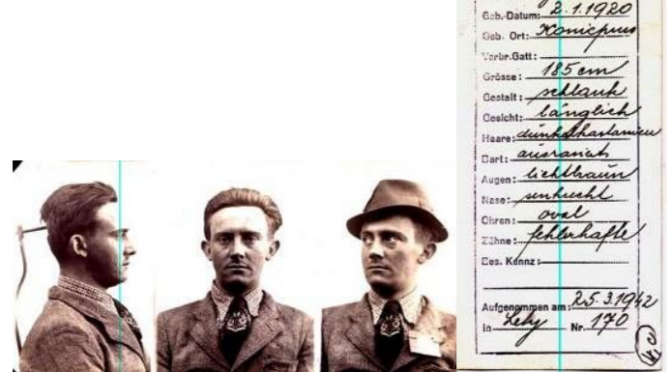
VIth Session of CEFRES Seminar 2021-2022
Biopolitics, Space and Bureaucratic Knowledge in the Twentieth Century: Perspectives from East Central Europe
When: Wednesday 8th December 2021, 4:30 pm
Where: At CEFRES and online (to register please contact claire(@)cefres.cz)
Language: English
Hosts:
Nikola Ludlová, Vojtěch Pojar
both PhD candidates at CEU and fellow at CEFRES
Our session consists of two presentations on biopolitics in East Central Europe. We focus on scientific knowledge and the agency of experts and bureaucracies in producing and circulating it. On the face of it, our presentations may seem disparate, as they focus on different scientific disciplines – demography and eugenics, respectively – and on different parts of the twentieth century. Our presentations, however, rest on three shared assumptions informed by the history of science. We would like to spell them out here.
Continue reading Biopolitics, Space and Bureaucratic Knowledge in the 20th Century →

4th session of CEFRES Seminar 2021-2022
Digital Games as Representations of the Past: The Central European Context
Hosted by:
Jan Kremer, Phd-fellow at CEFRES and at the Faculty of Education, Charles University
When: November 10th, 2021 at 4:30 pm
Where: CEFRES and online (to register please mail to claire(@)cefres.cz)
Language: English
Jan Kremer will present historical game studies as a part of a broader field of public history. The paper will deal with historical games as a fluid research subject, it will introduce main analytical methods and strategies. Jan Kremer as a medievalist writing his PhD thesis on digital medievalism will further examine ludic representations of the Middle Ages focusing on Central European digital games production in the context of regional historical culture.
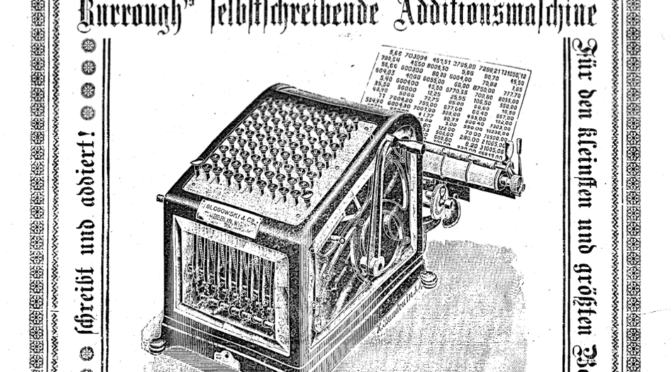
3rd session of CEFRES Seminar 2021-2022
What Did the Typewriter Do to Banking?
Bureaucratic Practices, Materiality, and the Logic of Capitalism in the Late Habsburg Monarchy
Hosted by:
Mátyás Erdélyi, post-doctoral fellow at CEFRES and Charles University
When: November 3rd, 2021 at 4:30 pm
Where: CEFRES and online (to register please mail to claire(@)cefres.cz)
Language: English
Abstract
In this talk, I present my current research project that focuses on bureaucratic practices in banking at the turn of the century from the perspective of the materiality of office work. The project reconstructs the emergence of the modern bureau by relating the “grubby details” of office work to the multi-faceted identity of functionaires. Based on the case study of several savings banks in the Dual Monarchy, it studies how the logic of capitalism materialized and was embodied in different forms, how bureaucratic practices were implanted in the body and hands of clerks, and what exactly clerks did and they did it with what?
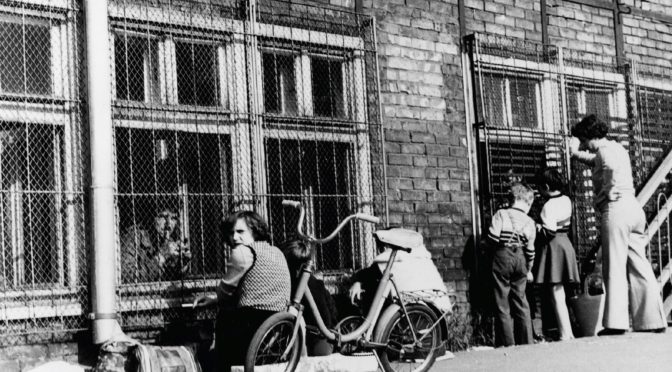
Vth Session of CEFRES Seminar 2021-2022
Visual Sources in the Historian’s Studio. Solidarność through Films and Photographs
When: Wednesday 1st December 2021, 4:30 pm
Where: At CEFRES and online (to register please contact claire(@)cefres.cz)
Language: English
Host:
Ania Szczepanska, Paris I Pantheon-Sorbonne University (lab. HICSA), documentary filmmaker
Having been exploring the Polish archives of the communist era, Ania Szczepanska published a book on cinema as a critical response to the regime in Poland in the 1970s. Her first documentary, Nous filmons le peuple ! [We Film the People!] (Abacaris, Les films de l’Air, Ciné +), is dedicated to the conflicts between the communist power and artists, more precisely around the filmmaker Andrzej Wajda. This documentary film was selected in competition in 2013 at the International History Film Festival (Festival international du film d’Histoire) and was awarded an Étoile (star) by the Scam (Civil Society of Multimedia authors). Moreover, she also directed Solidarność, la chute du mur commence en Pologne [Sollidarność: How Solidarity Changed Europe] (Looksfilm, 2019) which was broadcasted on Arte on the occasion of the 30th anniversary of the fall of the Berlin wall.
As author of numerous articles, she has also cowritten, together with Sylvie Lindeperg, a book devoted to audiovisual archives A qui appartiennent les images ? [To Whom Do the Images Belong?] (Editions de la Maison des sciences de l’Homme, 2017). Her latest book, entitled Une histoire visuelle de Solidarność [A Visual History of Solidarność] (Éditions de la Maison des sciences de l’Homme, 2021), addresses the history of the Solidarność movement through elaborate visual traces on both sides of the Iron Curtain.
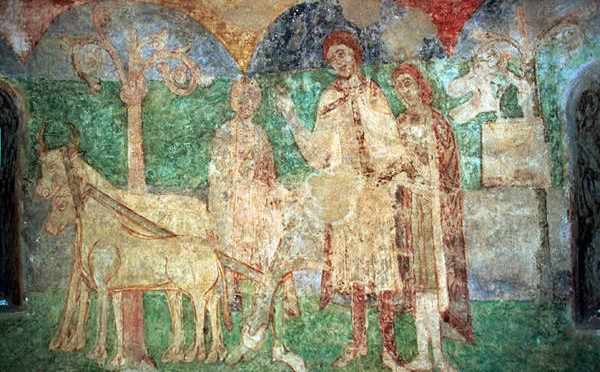
2nd session of CEFRES Seminar 2021–2022
Nation(s) in the Middle Ages? Discussing a Controversial Concept through a Sample of the Oldest Czech Historical Sources
Date: Wednesday 13 October 2021 at 4:30 pm
Location: CEFRES Library and online (to register, please write to the address: claire(@)cefres.cz)
Language: English
Hosted by:
Arthur Pérodeau (PhD candidate at EHESS, Paris, and Charles University, Prague, associated at CEFRES)






